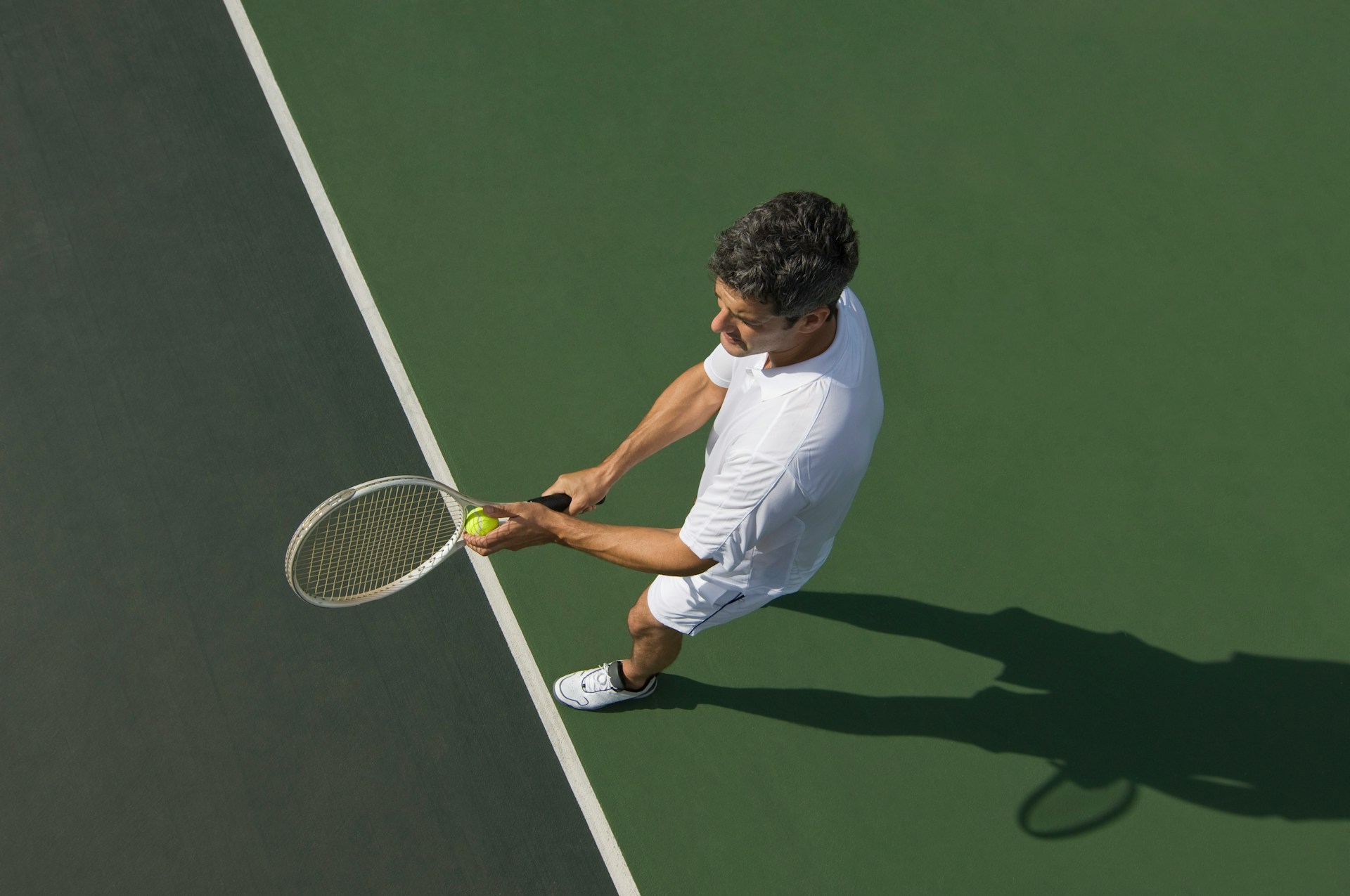
Tennis is a fast, demanding sport. It’s about speed, power, and skill—but that’s not all. The top players know that what happens in their minds is just as important as what happens on the court. The difference between winning and losing often comes down to mental strength. This is called the mental edge. It’s the inner game—the thoughts, focus, and mindset that shapes every swing, serve and strategy. Let’s explore how today’s tennis champions train their minds beyond the court to gain that edge.
The Role of the Mental Edge in Tennis Performance
In a high-stakes match, physical skill is only part of the equation. Pressure builds. The crowd roars. Fatigue sets in. In those moments, the mental edge takes over. It helps players stay calm, block distractions, and trust their training. A strong mind can overcome fear, manage nerves, and help players recover quickly from mistakes.
Mental strength in tennis means believing in yourself, no matter the score. It also means staying focused point by point. Champions don’t just react—they remain present, think ahead, and keep their emotions in check. This sharp mental game often makes the difference in tight matches or long tournaments.
Focus Training: Sharpening the Mind Like a Racket
Top tennis players train their minds just like they train their bodies. Focus is key. In long matches, the brain needs to lock in for hours. Players use special techniques to boost this skill. One standard method is visualization. Before matches, many players picture each point in their mind—how they will serve, move, and respond.
Another strategy is mindfulness, where players learn to notice their thoughts without letting them take control of their actions. This helps them stay grounded in the moment rather than getting caught up in pressure or dwelling on past mistakes. Breathing exercises, meditation, and even journaling also help players sharpen focus and clear mental clutter before hitting the court.
Building Resilience Through Mental Rehearsal
Mental rehearsal helps players prepare for challenging moments before they happen. They imagine being down a set or facing match point—and then winning anyway. This practice builds resilience, a key part of the mental edge. Resilient players bounce back quickly after errors or missed shots. They don’t break down under stress. Instead, they recover and rise.
Coaches often guide players through these mental sessions. They review challenging match situations, train players to stay positive, and help them create mental scripts. These scripts are like inner mantras—simple, clear thoughts that bring confidence. Repeating them builds a steady mindset, even when the pressure is on.
Emotional Control and Self-Talk
Tennis can be an emotional sport. A single missed shot can lead to frustration or self-doubt. But champions learn to control their emotions and turn them into fuel. Instead of getting angry, they pause, breathe, and refocus. They also use positive self-talk—short phrases that remind them to stay calm and assertive.
“You’ve got this.” “Stick to your plan.” “One point at a time.” These words matter. They shape how players feel and act. A strong mental edge means staying composed even when things go wrong. Emotional control keeps energy focused on the match rather than being wasted on frustration.
Off-Court Habits That Strengthen the Mental Game
Mental training doesn’t just happen at practice. Top players build strong habits off the court that support their mindset. Good sleep, proper nutrition, and consistent routines all play a role. These habits keep the mind sharp, reduce stress, and create stability in a high-pressure life.
Reading, listening to music, or spending time in nature helps players reset. Some use sports psychology apps or work with mental performance coaches. Others keep journals to track progress, reflect on challenges, and set goals. All of these tools help players build and maintain their mental edge on a day-to-day basis.
The Mental Edge in Young and Rising Players
You don’t have to be a pro to build a mental edge. Young players can start training their minds early. Learning how to focus, bounce back, and handle pressure gives them an advantage at any level of competition. Parents and coaches play a significant role here. Encouraging a growth mindset—where effort matters more than results—builds confidence and mental toughness.
Rising stars who learn to love challenges, not fear them, often grow faster. They see losses as lessons and hard matches as tests of strength. This mental approach makes tennis more fun, more rewarding, and, ultimately, more successful.
Tennis champions don’t just win with their rackets—they win with their minds. The mental edge is the hidden strength that fuels top-level performance. Focus, resilience, emotional control, and smart off-court habits provide players with the tools to thrive in high-pressure moments.
Whether you’re a young player starting or a seasoned athlete aiming higher, mental training can take your game to the next level. By building your inner strength, you create a game that’s not just strong—but unshakable. That’s the power of the mental edge in tennis.